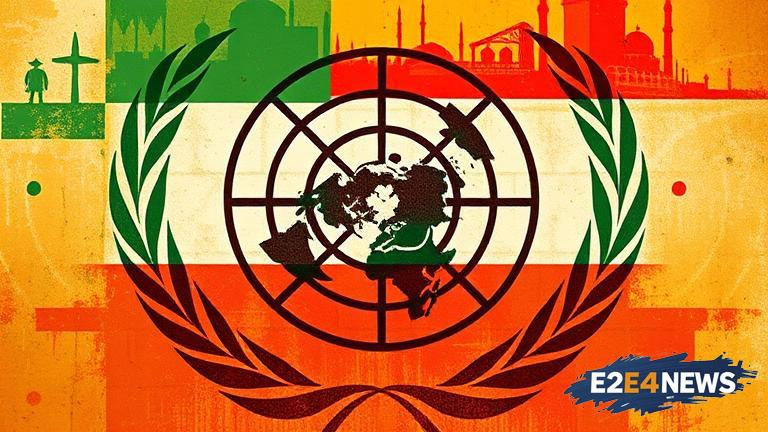The Joint Comprehensive Plan of Action (JCPOA), commonly known as the Iran nuclear deal, was signed in 2015 between Iran, the United States, the United Kingdom, France, Germany, China, and Russia. The agreement aimed to restrict Iran’s nuclear program in exchange for relief from economic sanctions. However, the deal has been facing challenges, particularly after the United States withdrew from it in 2018. The UN snapback mechanism is a provision in the JCPOA that allows for the reimposition of sanctions on Iran if it fails to comply with the agreement. This mechanism can be triggered by any of the parties to the deal, including the United States, which has been a strong critic of the agreement. The snapback mechanism is designed to ensure that Iran does not develop nuclear weapons, and it has significant implications for global security and diplomacy. The mechanism allows for the reimposition of sanctions on Iran’s nuclear program, as well as its ballistic missile program and support for terrorism. The sanctions can have a significant impact on Iran’s economy, which has already been struggling due to the COVID-19 pandemic and mismanagement. The reimposition of sanctions can also have implications for global oil prices, as Iran is a significant oil producer. The JCPOA has been facing challenges, particularly after the United States withdrew from it in 2018. The withdrawal was followed by a series of attacks on oil tankers and pipelines in the Middle East, which were blamed on Iran. The attacks led to a significant escalation of tensions between the United States and Iran, with both countries imposing sanctions on each other. The situation has been further complicated by the COVID-19 pandemic, which has had a significant impact on Iran’s economy. The pandemic has led to a shortage of medical supplies and equipment, which has been exacerbated by the sanctions. The sanctions have also had a significant impact on Iran’s ability to respond to the pandemic, with many hospitals and medical facilities struggling to cope with the shortage of supplies. The UN snapback mechanism has been the subject of significant debate and controversy, with many countries opposing the reimposition of sanctions on Iran. The mechanism has been criticized for being too broad and for not taking into account the humanitarian implications of the sanctions. The critics argue that the sanctions can have a disproportionate impact on ordinary Iranians, who are already struggling to make ends meet. The supporters of the mechanism, on the other hand, argue that it is necessary to prevent Iran from developing nuclear weapons and to protect global security. The debate over the snapback mechanism has significant implications for global diplomacy, particularly in the Middle East. The region has been facing significant challenges, including the conflict in Yemen and the Israeli-Palestinian conflict. The reimposition of sanctions on Iran can have significant implications for these conflicts, particularly if it leads to an escalation of tensions between Iran and its neighbors. The situation has been further complicated by the role of other countries, including China and Russia, which have been opposed to the reimposition of sanctions on Iran. The two countries have significant economic interests in Iran and have been working to undermine the sanctions. The debate over the snapback mechanism has significant implications for the future of the JCPOA and the global non-proliferation regime. The agreement has been seen as a significant achievement in preventing the proliferation of nuclear weapons, and its collapse can have significant implications for global security. The situation has been further complicated by the role of the International Atomic Energy Agency (IAEA), which has been responsible for monitoring Iran’s compliance with the agreement. The IAEA has reported that Iran has been complying with the agreement, but there have been concerns about its adherence to the spirit of the agreement. The concerns have been fueled by reports of Iran’s support for terrorism and its development of ballistic missiles. The situation has significant implications for the global non-proliferation regime, particularly if it leads to the collapse of the JCPOA. The collapse of the agreement can have significant implications for the global security architecture, particularly in the Middle East. The region has been facing significant challenges, including the conflict in Yemen and the Israeli-Palestinian conflict. The reimposition of sanctions on Iran can have significant implications for these conflicts, particularly if it leads to an escalation of tensions between Iran and its neighbors.



